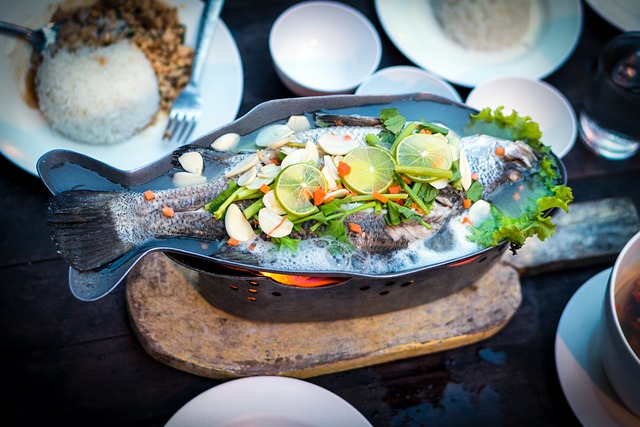The effect of diet on skin health varies from person to person. Some people can eat anything they want and never have any problems. If you don't have skin problems, you don't have to worry too much about your diet. If you've diagnosed conditions that you're struggling to resolve, consider following a simple elimination diet where you cut out different food groups one by one to identify your potential problem.
Like sitting in the sun, the food you eat is an environmental factor that affects your skin. A balanced diet can promote healthy skin, reduce chronic diseases, and help prevent premature aging. Nourishing your body with vitamins, minerals, and adequate water daily can promote better skin health.
Nutrients for healthy skin
Your skin needs the right balance of nutrients to do its main job: acting as a barrier that protects the rest of your body from things outside of it. To help keep your skin looking, functioning and feeling good, nourish it well from within.
Below are the nutrients that help maintain healthy skin:
1. Healthy fats: This is how your skin gets its “glow.” Too little fat in your diet can make skin dry. Focus on monounsaturated and polyunsaturated fats from plants such as nuts, seeds, and avocados, and from fish. These elements help skin stay hydrated, firm and elastic, and are better for the heart than saturated fats.
Omega-3 fatty acids are a type of polyunsaturated fat, which your body cannot make but needs to build cell walls. They also block the chemical that allows skin cancer to grow and spread, and may reduce inflammation.
2. Protein: The body converts the proteins you eat into building blocks called amino acids and reuses them to make other proteins, including collagen and keratin, which make up the structure of the skin. Amino acids also help get rid of old skin.
3. Vitamin A: Both the upper and lower layers of the skin need vitamin A. It appears to prevent sun damage by interrupting the process that breaks down collagen. Since it's an antioxidant, it may give the skin some protection against sunburn (although not as much as applying sunscreen). It helps the sebaceous glands around hair follicles work and may also help cuts and scrapes heal, especially if you take steroids to reduce inflammation. Without enough vitamin A, the skin may become dry or itchy.
4. Vitamin C: Think “C” for collagen: This vitamin helps the twisted protein network maintain its shape. It is also a powerful antioxidant, protects you from free radicals and may reduce your chance of developing skin cancer. Low levels of vitamin C can cause gums to bruise and bleed easily, as well as sores to heal more slowly. This antioxidant and anti-inflammatory can also absorb energy from ultraviolet rays, which damage the skin and lead to wrinkles, sagging and skin cancer. Works with Vitamin C to strengthen cell walls.
5. Zinc: The outer layer of your skin contains five times more of this mineral than the layer underneath. Zinc helps your skin heal after injury. It is necessary to maintain the stability of cell walls and for cells to divide and specialize as they grow. Zinc may protect the skin from UV damage because of the way it interacts with other minerals in your body, such as iron and copper. It also acts as an antioxidant.
6. Selenium: Selenium is a mineral that helps some antioxidants protect the skin from ultraviolet rays. Selenium deficiency has been linked to a greater chance of developing skin cancer.
Examples of food sources for each nutrient:
Some foods contain more than one nutrient for the skin, which often helps it function better:
2. Dark leafy vegetables (kohlrabi, spinach, kale): Vitamins A, C, and E; Omega 3; Protein - plus selenium found in spinach.
3. Eggs: protein, vitamins A and E, selenium, zinc.
4. Flax seeds: Omega 3, selenium.
5. Legumes (lentils, chickpeas): protein, zinc.
6. Avocado: Healthy fats and vitamins C and E.
7. Extra virgin olive oil: healthy fats, vitamin E.
Foods to avoid for healthy skin:
An unhealthy diet should be avoided. One has to be very conscious of what one eats. Both children and adults must pay attention to their eating habits. When we are young, we can eat all kinds of foods. As we get older, we have to be careful about what we eat. We have to avoid some foods. Proper nutrition is essential, otherwise one will develop serious diseases.
If a person eats well, he is in good shape physically and mentally. He or she is very attentive and skilled in carrying out their responsibilities in the workplace. Many people these days are turning to eating fast food, or rather fast food. This is not good for your health. They contain a lot of fat and carbohydrates, and one can gain weight. Fatty foods are also not suitable for the skin. An unhealthy diet not only destroys our body functions, but also affects our skin. Any way you may ask. Let's look at it:
1. A diet lacking in nutrients such as calcium, niacin, folic acid and copper can affect skin tone.
2. Vegetables and fruits must be cleaned properly to ensure proper hygiene.
3. Vitamin A, found in citrus foods, as well as oranges, helps eliminate dry skin and blemishes.
4. Fatty snacks are not very good for the skin.
5. High-fat processed foods should be avoided.
6. You should not drink soft drinks and foods that contain a high percentage of sugar.
7. You can eat a small amount of foods made from whole grains. Raw organic nuts such as almonds, Brazil nuts, and walnuts can also be eaten.
Conclusion
Food affects each person differently, although some types negatively affect people's skin more often. If you want to prevent your condition from getting worse, or you want to work on maintaining healthy skin, you should try to avoid fast food and sugary products.

Comments
Post a Comment